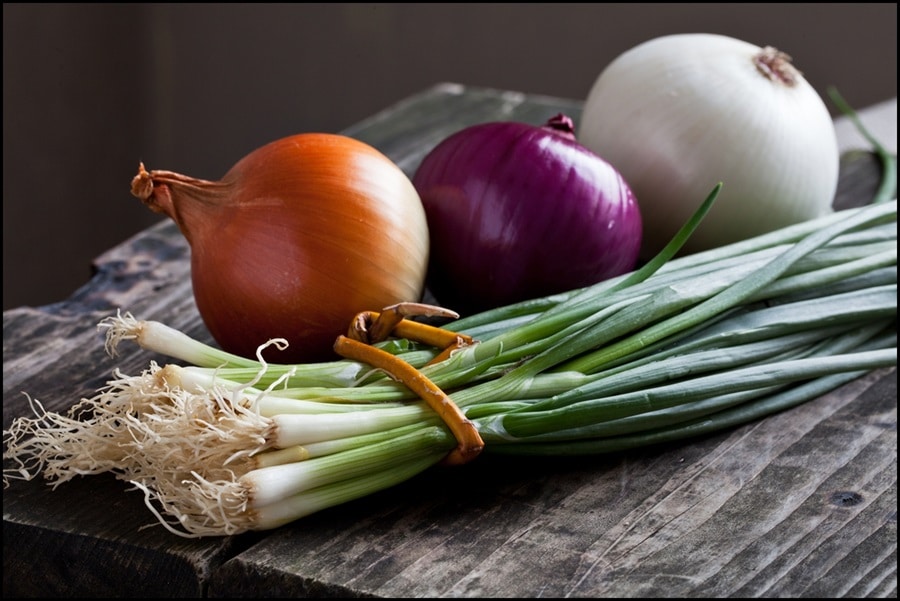Vitamin K is pivotal in maintaining blood health, primarily by aiding blood clotting. Often overshadowed by other vitamins, its importance is paramount, especially in preventing excessive bleeding and facilitating wound healing. Foods rich in Vitamin K are vital for blood thickening and contribute to bone health and other bodily functions. This article will delve into a selection of foods, each a powerhouse of Vitamin K, showcasing how they contribute to blood health and overall well-being. From leafy greens to various meat options, readers will discover a variety of choices to incorporate into their diets for a healthier lifestyle.
Contents
Spinach

Spinach is a leafy green vegetable renowned for its high vitamin K content. Just one cup of cooked spinach can provide more than the daily requirement of this crucial vitamin. This makes spinach an excellent choice for those looking to improve their blood clotting capabilities and bone strength. Its versatility in the kitchen allows it to be included in a myriad of dishes, from salads to smoothies, making it an accessible option for most diets.
In addition to Vitamin K, spinach is a source of dietary fiber, iron, and calcium, contributing to its status as a superfood. Regular spinach consumption can help maintain a balanced diet and improve overall health. Its mild flavor and ease of preparation make spinach popular for cooked and raw culinary creations.
Kale

Kale stands out in the leafy green family for its dense nutrient profile, particularly its high concentration of Vitamin K. A cup of kale can significantly contribute to one’s daily Vitamin K requirement, which is vital for blood clotting and bone health. Kale’s robust flavor and texture set it apart from other greens, making it a favorite in health-conscious communities.
The comparison of kale to other leafy greens, such as spinach and Swiss chard, highlights its superior nutrient content. Including kale in daily meals can be as simple as adding it to smoothies, salads, or a cooked side dish. Its versatility extends to various cuisines, offering a nutritional boost to any meal.
Broccoli

Broccoli, a cruciferous vegetable, is another excellent source of Vitamin K, which is crucial for blood thickening and overall health. The benefits of broccoli extend beyond blood clotting; it is also known for its cancer-preventing properties and contribution to heart health. Broccoli can be enjoyed in numerous ways, making it a staple in many diets.
Preserving broccoli’s vitamin K content when cooking is important. Steaming or stir-frying are optimal methods for retaining nutrients while enhancing its natural flavors. Incorporating broccoli into daily meals can be as simple as adding it to pasta salads or enjoying it as a standalone side dish, seasoned to taste.
Brussels Sprouts

Brussels sprouts, often underestimated, are a potent source of Vitamin K. Their distinctive taste and texture make them a unique addition to the diet, especially for blood-thickening purposes. Brussels sprouts can be prepared in various ways to suit different palates, from roasting to steaming, enhancing their natural flavor.
Overcoming the common aversion to Brussels sprouts is key to enjoying their health benefits. Cooking them with complementary flavors like garlic, bacon, or balsamic vinegar can make them more appealing. Their high nutrient content, particularly in Vitamin K, makes Brussels sprouts an important food for those focusing on blood health.
Beef Liver

Beef liver is a less common but significant source of Vitamin K, making it an excellent choice for non-vegetarian diets. Its high nutrient content extends beyond Vitamin K, providing a rich source of iron and protein. Beef liver can be an integral part of a balanced diet, contributing to blood clotting and overall health.
Cooking beef liver requires specific techniques to retain nutrients and make it palatable. It can be prepared in various ways, from pan-frying to baking, often accompanied by onions or other flavor-enhancing ingredients. Regular consumption of beef liver, in moderation, can significantly boost Vitamin K intake and other essential nutrients.
Chicken

Chicken is a widely consumed meat that contributes to Vitamin K intake. Different cuts of chicken, such as the breast or thigh, vary in nutrient content, offering options for dietary preferences. Chicken is a source of Vitamin K and provides protein, making it a staple in many diets.
Incorporating chicken into a Vitamin K-rich diet can involve various cooking methods, such as grilling, baking, or stir-frying. It is important to cook chicken in ways that preserve its nutrients while ensuring it remains a flavorful component of the meal. Including chicken in meals can help maintain a balanced diet, contributing to blood health and overall wellness.
Pork

Pork is another meat option for those looking to increase their Vitamin K intake. While often overlooked, pork provides a considerable amount of this essential vitamin. Balancing pork consumption with other nutrient-rich foods can lead to a healthy and varied diet.
The cooking methods for pork are crucial in maintaining its Vitamin K content. Techniques such as roasting or grilling can enhance its flavor while preserving its nutritional value. Including pork in regular meals offers an alternative Vitamin K source and other beneficial nutrients.
Cheese

Cheese is a flavorful source of Vitamin K. Different types of cheese, such as Gouda, Swiss, or Cheddar, provide varying levels of this vitamin. Cheese adds not only nutritional value but also culinary diversity to meals.
Including cheese in a balanced diet involves creativity and moderation. It can be used in various dishes, from sandwiches to salads, adding flavor and nutritional value. The role of cheese in contributing to Vitamin K intake makes it a valuable food for those focusing on blood health.
The Bottom Line
The importance of Vitamin K in maintaining blood health cannot be overstated. This article has explored a variety of foods, each rich in Vitamin K, providing options for everyone, regardless of dietary preferences. From leafy greens like spinach and kale to meats like chicken, pork, and even cheese, these foods enhance blood clotting capabilities and overall health. Embracing a balanced diet that includes these Vitamin K-rich foods is essential for maintaining good blood health and contributes to a healthier lifestyle.


